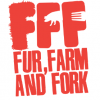Hello from Austin! I know this is a long post but I really want to know what you guys think....
OK, so yesterday we had one of our local transportation brokers come out to talk to us about FDA's Sanitary Food Transportation rules and what they are doing about it. Basically, she gave us a talk about how one of their senior reps told her that since they only do dry loads that they are exempt. Gave me some typed up Q&A that she made for us (big font, lots of bold) and told me that she had done her research. That only refrigerated trucks were subject to this ruling.
Of course I didn't buy what she was selling.
I had already done some webinars/research and from what I understand this is for ANY food transport method (unless you're exempt like Milk tankers). I fully understand that for refrigerated transport this ruling weighs a bit heavier but don't tell me that this does not apply to you! ::breath::
We use transportation brokers to schedule our LTL pickups which is primarily for dry products. We have always asked for our products to be transported in clean, good repair, trucks. No chemical hazards are allowed to be transported in the same truck. We also ask them to not carry any open products that might cause some cross-contamination. We have never had any issues with them not following our requests.
For anyone that is either in food transport or deals with transport brokers, my question as a receiver is what should I ask from them to be compliant with this ruling? We can't do contracts because we do spot purchases and do not have trucks coming here daily. Or is what we are already requesting on the BOL enough? Possibly some sort of letter of guarantee with our requests on it?
Or is it just me being annoyed by her trying to pull a fast one?? ![]()
- Louie












